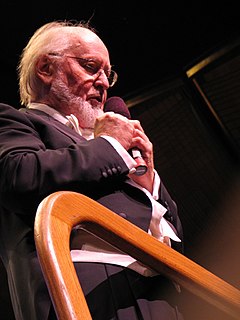A Quote by F. Scott Fitzgerald
You really ought to read more books - you know, those things that look like blocks but come apart on one side.
Related Quotes
I must say, some are not very beautifully made. They’re coffee-table books for people who drink alcohol. I have nothing against coffee-table books as long as they are well done. They must not look like gravestones on a table. Sometimes they are too big, they come in boxes and things like this. No, a book has to be easy to open and you don’t have to be a bodybuilder to lift it. I like books I can read in bed. Those big tombstones would kill me.
I never look at fashion magazines. I find them incredibly boring. To me, reading a fashion magazine is the last thing I need to do. I've got books I need to read. More people should read books. It's the most concentrated experience you can have. You know, all those incredible geniuses concentrated their lifetimes' experiences in books. It's much better than chattering away to somebody who's never read anything and knows nothing at all.
I don't think anything ever "needs" to happen. I don't think it's more positive to have a Twitter account, a Tumblr, and a blog. Someone without those things will use their time to do other things, like read books or swim or talk to their children or read websites or listen to music or write books or lie in bed or sit in a chair. I don't think any of these things are more positive than any other things.
I don't think it's more positive to have a Twitter account, a Tumblr, and a blog. Someone without those things will use their time to do other things, like read books or swim or talk to their children or read websites or listen to music or write books or lie in bed or sit in a chair. I don't think any of these things are more positive than any other things. I don't think having an internet presence helps financially.
There is nothing for it but for all of us to invent our own ideal libraries of classics. I would say that such a library ought to be composed half of books we have read and that have really counted for us, and half of books we propose to read and presume will come to count—leaving a section of empty shelves for surprises and occasional discoveries
Writing is a bit like walking into a big bookstore. It's the bookstore of your brain, and you know you're never going to read all those books. It makes you happy you're in the bookstore, and you're nervous because you know you're never going to read all those books. So the nervousness is also happy. Once I get going writing poetry is one of the happiest things I do, but it is also fraught with all of these anxieties.
It is usual to speak in a playfully apologetic tone about one's adult enjoyment of what are called 'children's books.' I think the convention a silly one. No book is really worth reading at the age of ten which is not equally (and often far more) worth reading at the age of fifty-except, of course, books of information. The only imaginative works we ought to grow out of are those which it would have been better not to have read at all. A mature palate will probably not much care for crème de menthe: but it ought still to enjoy bread and butter and honey.
The most important thing for a writer to do is to write. It really doesn't matter what you write as long as you are able to write fluidly, very quickly, very effortlessly. It needs to become not second nature but really first nature to you. And read; you need to read and you need to read excellent books and then some bad books. Not as many bad books, but some bad books, so that you can see what both look like and why both are what they are.






































